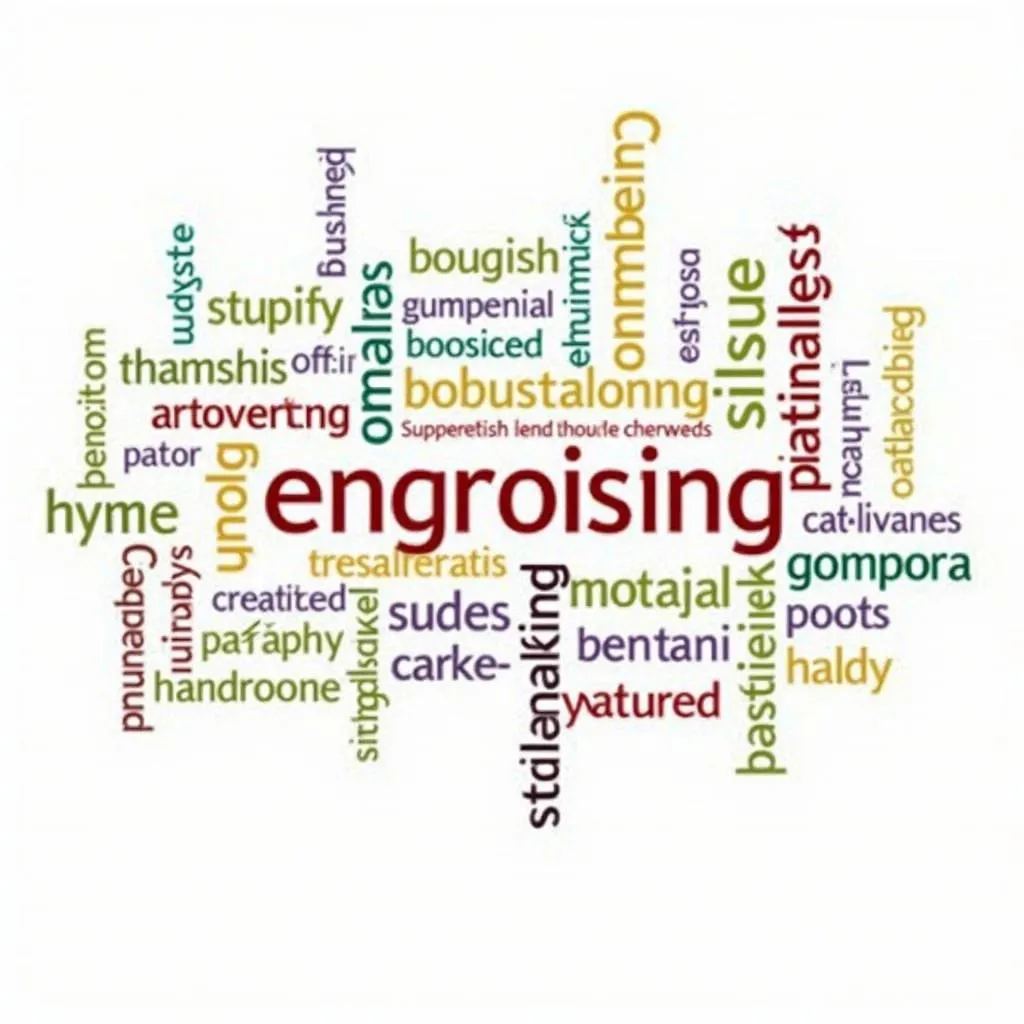When preparing for the IELTS Speaking test, one common topic that often appears is describing a book you have recently read. This question allows examiners to assess your ability to articulate your thoughts, use appropriate vocabulary, and engage in a meaningful conversation about literature. Let’s explore how to tackle this topic effectively and boost your chances of achieving a high band score.
Nội dung bài viết
Part 1: Introduction and Interview
In the first part of the IELTS Speaking test, you may encounter questions related to reading habits and preferences. Here are some typical questions an examiner might ask:
- Do you enjoy reading books?
- What type of books do you usually read?
- How often do you read?
- Do you prefer physical books or e-books?
- Have you read any books recently?
Let’s focus on the last question and provide a sample answer:
Question: Have you read any books recently?
Sample Answer (Band 7-8):
“Yes, I have. I recently finished reading ‘The Midnight Library’ by Matt Haig. It’s a thought-provoking novel that explores the concept of life choices and parallel universes. The story follows a woman who gets the chance to try out different versions of her life, which I found incredibly fascinating. I was completely engrossed in the book and finished it within a week.”
Describe a place where you like to go for long walks can be another interesting topic you might encounter in the IELTS Speaking test. Just like describing a book, it requires you to use descriptive language and share personal experiences.
Part 2: Long Turn
In this section, you’ll be given a cue card with a topic and some prompts. Here’s a sample cue card related to describing a book:
Describe a book you have read recently
You should say:
- What the book was
- When you read it
- What it was about
- And explain why you liked or disliked itSample Answer (Band 6-7):
“I’d like to talk about a book I read recently called ‘The Silent Patient’ by Alex Michaelides. I finished reading it about a month ago during my summer break.
The book is a psychological thriller that revolves around a woman named Alicia Berenson, who is accused of murdering her husband and then becomes completely silent. The story is narrated by a psychotherapist who is determined to make Alicia speak and uncover the truth behind the murder.
What I found particularly interesting about this book was its unexpected plot twists. The author does an excellent job of keeping the reader guessing until the very end. I was constantly on the edge of my seat, trying to figure out what really happened.
I really enjoyed this book because of its gripping storyline and well-developed characters. The author’s writing style was engaging, and I found myself unable to put the book down. It made me think about the complexities of the human mind and how our past experiences can shape our actions.
Overall, I would highly recommend this book to anyone who enjoys psychological thrillers or mysteries. It’s a captivating read that keeps you guessing until the final page.”
Sample Answer (Band 8-9):
“I’d be delighted to share my thoughts on a book I recently immersed myself in, ‘Educated’ by Tara Westover. I devoured this memoir over the course of a week during my daily commute last month.
This extraordinary narrative chronicles Westover’s journey from growing up in a strict and isolated Mormon family in rural Idaho to eventually earning a PhD from Cambridge University. The author’s upbringing was marked by her family’s extreme views, including a distrust of formal education and modern medicine.
What struck me most profoundly about this book was Westover’s resilience and unwavering determination to educate herself despite the numerous obstacles she faced. Her vivid and poignant descriptions of her childhood experiences and her subsequent struggles to adapt to the academic world were both heart-wrenching and inspiring.
I found myself utterly captivated by Westover’s story for several reasons. Firstly, her writing style is remarkably eloquent and introspective, allowing readers to fully immerse themselves in her experiences. Secondly, the book raises thought-provoking questions about the nature of education, family loyalty, and personal identity. It challenged me to reflect on my own beliefs and the factors that have shaped my worldview.
Moreover, I was deeply moved by Westover’s ability to maintain compassion and understanding towards her family, even as she grappled with the impact of their beliefs on her life. This nuanced portrayal of complex family dynamics added an extra layer of depth to the narrative.
In conclusion, ‘Educated’ is a profoundly impactful memoir that I would wholeheartedly recommend. It’s a testament to the power of education and self-discovery, and it serves as a poignant reminder of the human capacity for growth and transformation in the face of adversity.”
 IELTS Speaking: Describing a Book
IELTS Speaking: Describing a Book
Follow-up Questions:
- Has this book influenced your life in any way?
- Would you recommend this book to others? Why or why not?
Sample Answers (Band 8-9):
-
“Indeed, ‘Educated’ has had a significant impact on my perspective. It has made me profoundly grateful for the educational opportunities I’ve had and has inspired me to be more curious about different life experiences. The book has also encouraged me to challenge my own preconceptions and to approach unfamiliar ideas with an open mind.”
-
“Absolutely, I would wholeheartedly recommend this book to others. It’s not only a compelling personal story but also a thought-provoking exploration of education, family dynamics, and personal growth. I believe it has the power to broaden readers’ horizons and foster empathy for those from different backgrounds. It’s the kind of book that stays with you long after you’ve finished reading, prompting ongoing reflection and discussion.”
Part 3: Two-way Discussion
In this section, the examiner will ask more abstract questions related to the topic. Here are some potential questions and sample answers:
Q1: How do you think reading habits have changed in the digital age?
Sample Answer (Band 7-8):
“I believe reading habits have undergone a significant transformation in the digital era. With the advent of e-books and audiobooks, people now have more flexibility in how and when they consume literature. Many readers appreciate the convenience of carrying an entire library on a single device, which has made reading more accessible.
However, this shift has also led to some challenges. The constant connectivity of digital devices can be distracting, potentially reducing the depth of engagement with longer texts. Additionally, there’s been a trend towards consuming shorter forms of content, such as articles and blog posts, which might impact people’s ability to concentrate on full-length books.
On the positive side, digital platforms have made it easier for people to discover new books and authors, and social reading apps have created communities where readers can share their thoughts and recommendations. Overall, while the medium may have changed, I believe the fundamental joy of reading remains intact.”
Q2: Do you think schools should focus more on encouraging students to read for pleasure?
Sample Answer (Band 8-9):
“I’m of the opinion that schools should indeed place a greater emphasis on fostering a love for reading among students. Reading for pleasure offers numerous benefits that extend far beyond academic achievement.
Firstly, it enhances vocabulary and language skills in a natural and enjoyable way. When students read for pleasure, they encounter a wide range of words and expressions in context, which can significantly improve their overall language proficiency.
Moreover, reading for enjoyment cultivates critical thinking and empathy. Through exploring diverse characters and scenarios, students develop the ability to consider different perspectives and understand complex human emotions. This skill is invaluable not only in academic settings but also in personal and professional life.
Additionally, the habit of reading for pleasure can serve as a lifelong tool for stress reduction and personal growth. In our increasingly fast-paced world, the ability to find solace and enjoyment in books is a valuable coping mechanism.
However, it’s crucial to strike a balance. While schools should certainly encourage reading for pleasure, they shouldn’t make it feel like a chore. The key lies in providing diverse reading materials, creating comfortable reading spaces, and allowing students the freedom to choose books that interest them.
In conclusion, by fostering a love for reading, schools can equip students with a powerful tool for continuous learning and personal development that will serve them well throughout their lives.”
Describe a time when you visited a famous lake is another topic that could come up in the IELTS Speaking test. Similar to describing a book, it requires you to use descriptive language and share personal experiences, which are key skills in achieving a high band score.
Key Vocabulary and Phrases for High Scores
To enhance your IELTS Speaking performance when describing a book, consider using these advanced vocabulary items and phrases:
-
Engrossing /ɪnˈɡrəʊsɪŋ/ (adjective): Completely holding one’s attention or interest.
Example: “The novel was so engrossing that I lost track of time while reading it.” -
Thought-provoking /ˈθɔːt prəˌvəʊkɪŋ/ (adjective): Stimulating careful consideration or attention.
Example: “The author’s perspective on climate change was truly thought-provoking.” -
Captivating /ˈkæptɪveɪtɪŋ/ (adjective): Capable of attracting and holding interest; charming.
Example: “The captivating storyline kept me up late into the night.” -
Nuanced /ˈnjuːɑːnst/ (adjective): Characterized by subtle shades of meaning or expression.
Example: “The author’s nuanced portrayal of the characters added depth to the story.” -
Profoundly /prəˈfaʊndli/ (adverb): In a deep or intense manner.
Example: “The book profoundly impacted my understanding of historical events.” -
Immerse oneself (phrasal verb): To involve oneself deeply in a particular activity or interest.
Example: “I completely immersed myself in the fictional world created by the author.” -
Grapple with (phrasal verb): To struggle or contend with.
Example: “The protagonist grapples with complex moral dilemmas throughout the novel.” -
Broaden one’s horizons (idiom): To expand the range of one’s knowledge, experience, or interests.
Example: “Reading diverse genres has really helped to broaden my horizons.”
 IELTS Speaking Vocabulary
IELTS Speaking Vocabulary
Examiner’s Advice
To excel in the IELTS Speaking test, particularly when describing a book, consider the following tips:
-
Practice regularly: Familiarize yourself with discussing various book genres and themes.
-
Expand your vocabulary: Learn and use advanced words and phrases related to literature and reading.
-
Structure your answers: Organize your thoughts logically, using clear transitions between ideas.
-
Provide specific examples: Support your opinions with concrete details from the book you’re describing.
-
Show enthusiasm: Demonstrate genuine interest in the topic through your tone and body language.
-
Develop your ideas: Don’t just state facts; explain your thoughts and feelings about the book.
-
Use a variety of tenses: Incorporate different tenses appropriately when discussing your reading experience.
-
Listen carefully: Pay close attention to the examiner’s questions and respond accordingly.
-
Be honest: If you haven’t read a book recently, it’s okay to talk about one you read a while ago or even a memorable article.
-
Stay calm: Remember, the examiner is interested in your language skills, not judging your literary tastes.
By following these guidelines and practicing regularly, you’ll be well-prepared to discuss books confidently in your IELTS Speaking test, potentially boosting your band score.


